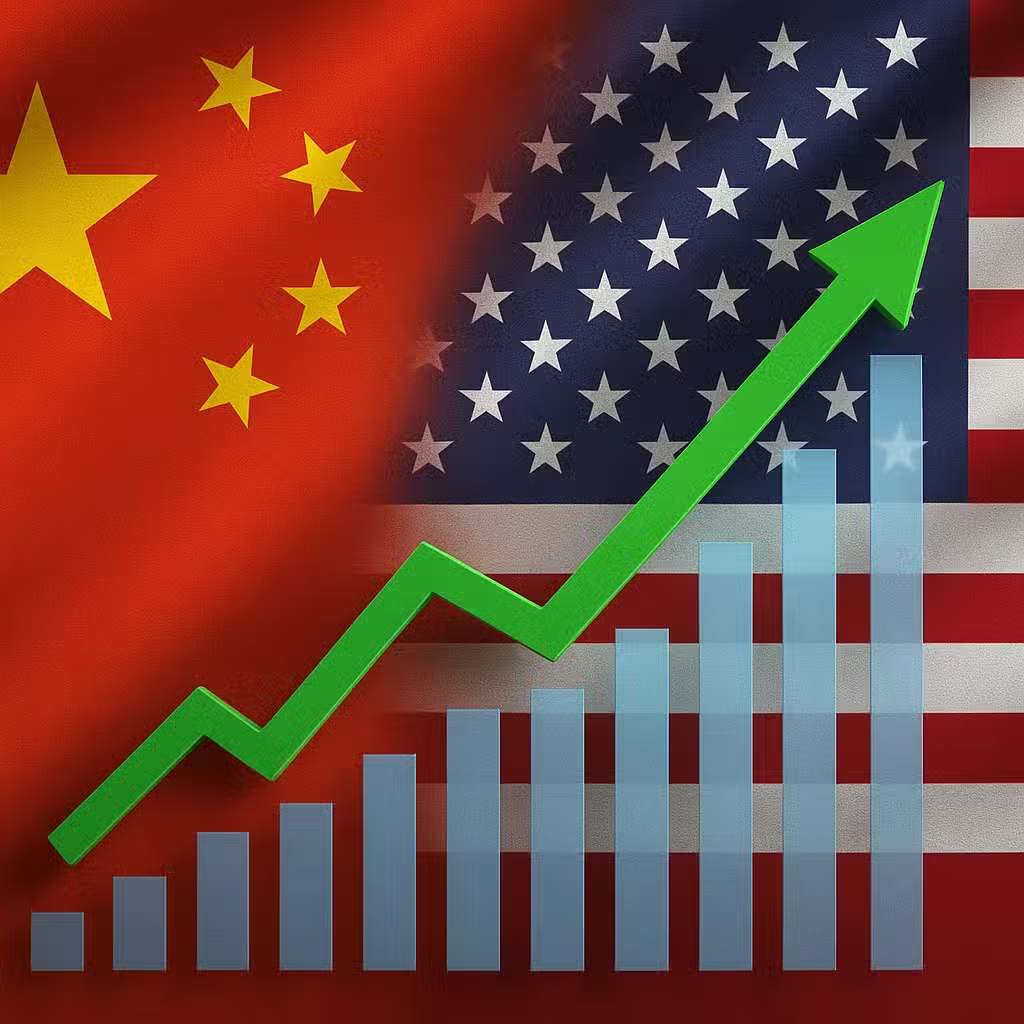China’s Earnings Season Highlights AI Winners, Offering New Opportunities for Investors
Imagine you’re watching a relay race, and suddenly, one team gets a burst of energy and sprints ahead. That’s what’s happening in China’s stock market right now, especially with companies using artificial intelligence (AI). This matters for investors because the winners and losers in this race could shape how your investment portfolio grows.
AI Gives Some Companies a Big Boost
China is working hard to add more AI into its economy. Some companies are already seeing bigger profits because of this push. In fact, Chinese “A shares” (mainland companies) reported a 12% jump in earnings for the third quarter compared to last year, according to UBS Securities.
- Media companies in AI jumped 57% in profits.
- Electronics companies grew earnings by 41%.
- Computer companies saw a 34% increase.
Experts say this growth could keep going, especially for tech-focused stocks on China’s ChiNext board, which lists big names like CATL and Sungrow Power.
Why Investors Should Pay Attention
For investors, these changes mean some sectors are racing ahead, while others are falling behind. If you own stocks in Chinese tech or AI, you might be in a good spot. But the market isn’t moving up everywhere.
- Hardware makers tied to AI have done the best so far.
- In Hong Kong, internet companies using AI for cloud services are leading.
But not all news is good. The CSI 300, a big stock index in China, recently hit a high but is now struggling to go higher. The Shanghai Composite also had a big run but couldn’t stay above the important 4,000 mark.
Bulls: Why the Optimists Are Excited
- AI and tech companies are growing profits much faster than most others.
- China’s top tech companies plan to spend about $63 billion on new projects in 2025, way up from $44 billion in 2024, according to HSBC.
- With recent trade talks done and less political tension, some analysts believe the outlook for Chinese stocks is better now than it was last year.
- Some experts expect sectors like robotics, semiconductors, and e-commerce to keep winning next year.
Bears: Why the Pessimists Are Worried
- Some parts of the market, like Hong Kong’s Hang Seng Index, saw profits drop by 1% in the third quarter, mainly because of tough price wars among internet companies.
- Profit margins in Hong Kong’s big stocks fell from 16% last year to 14% now.
- China’s economy is split: while tech and consumer stocks are doing well, other sectors—like real estate—are struggling. This “bifurcation” can make the market riskier.
- Investors are becoming more cautious as the year ends, and some are waiting to see clearer signs of future growth.
Sector Standouts and Historical Context
Not every part of China’s economy is winning. Analysts at Bernstein and Societe Generale estimate that just four sectors—consumer discretionary, communications, technology, and healthcare—will drive about 75% of earnings growth in China through 2027. This focus is similar to what happened in the U.S. when tech giants like Apple and Microsoft led most of the market’s gains in the 2010s (source).
Top picks for the next wave of growth include Xiaomi, Innolight, and Luxshare, all of which are tied to new technology and data centers.
Investor Takeaway
- Look for growth in AI and tech: Companies using or building AI tools are seeing the fastest profit increases.
- Don’t ignore the split: Some sectors are racing ahead, but others are falling behind—so it’s smart to check which sectors your investments are in.
- Watch for spending trends: Big investments from tech giants could mean more growth ahead, but also more competition and risk.
- Stay balanced: Diversifying your portfolio can help you ride the winners and avoid too much risk from any one struggling sector.
- Keep an eye on global news: Trade talks and government meetings can quickly change the outlook for Chinese markets, so stay informed.
For the full original report, see CNBC






